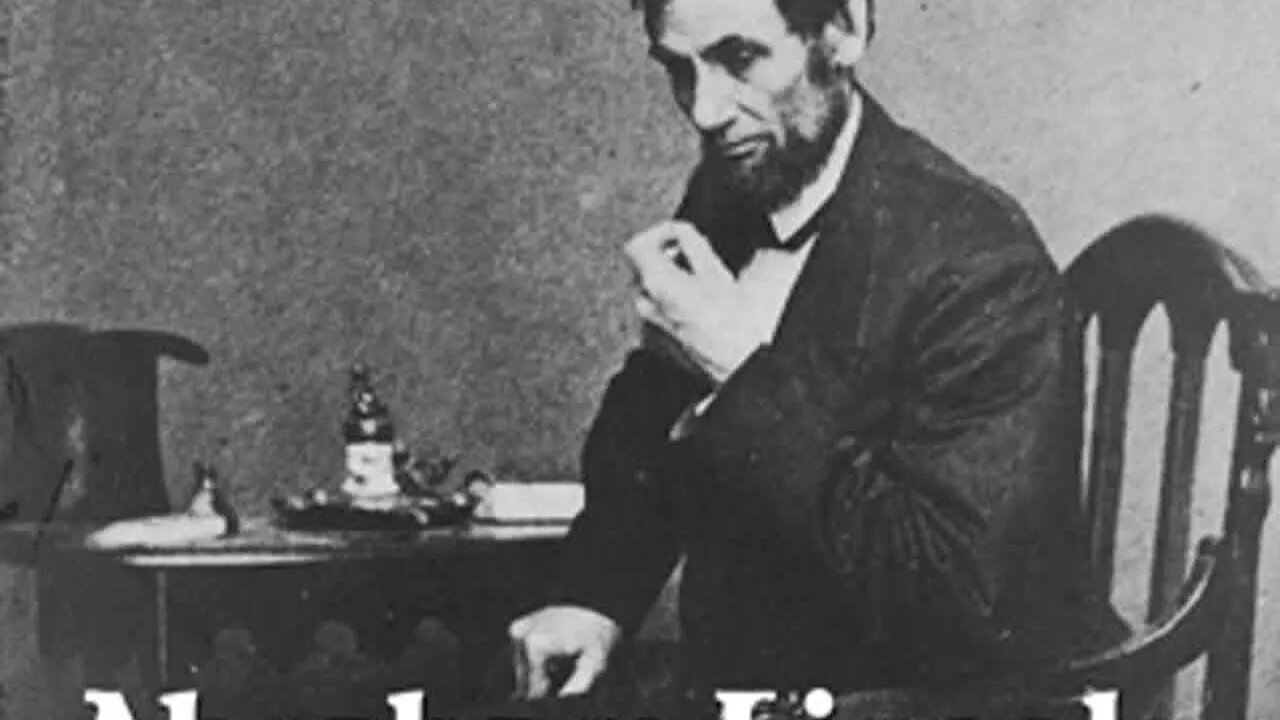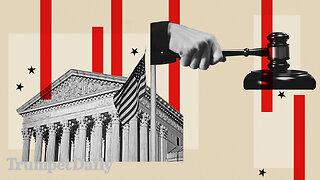Premium Only Content

Abraham Lincoln Walks at Midnight (full audiobook)
Abraham Lincoln Walks at Midnight" is a compelling and thought-provoking poem written by American poet Vachel Lindsay in 1914. The poem vividly depicts the spirit of Abraham Lincoln, the renowned 16th President of the United States, wandering the streets of Springfield, Illinois, stirred from his eternal sleep. Even in death, Lincoln remains burdened by the tragedies of the modern world, particularly those caused by the devastation of World War I. The poet, Lindsay, was deeply troubled and depressed by the bloodshed and death that the war had brought upon humanity during that time.
In the poem, Lincoln is portrayed as a mourning figure, pacing restlessly near various locations in Springfield, including the old courthouse, his homestead, and shadowed yards where his children used to play. The poet captures the essence of Lincoln's iconic appearance, wearing a suit of ancient black, a famous high top hat, and a plain, worn shawl, making him a figure of reverence and admiration – the prairie lawyer and master of all.
The poem beautifully captures the internal turmoil and restlessness of Lincoln's spirit. It expresses his deep concern for the suffering and the countless lives lost in the war, as well as his longing for a world at peace. Lincoln is shown deeply contemplating the actions of men and kings and is profoundly affected by the senseless wars that continue to plague the world. He carries the weight of the warlords' sins on his shoulders, feeling the bitterness, folly, and pain caused by their actions.
Throughout the poem, there is a strong theme of hope for a better future. Lincoln cannot rest until a "spirit dawn" comes, bringing the shining hope of freedom for Europe and a league of sober folk, creating a peaceful world for Cornland, Alp, and Sea. The poem reflects a desire for a world where the peasants no longer fight without knowing why, and the homesteads no longer weep in terror.
"Abraham Lincoln Walks at Midnight" has been recognized for its poetic beauty and depth of emotion. It was included in Louis Untermeyer's anthology, "Modern American Poetry," published in 1919, and is now often used in educational settings to inspire students with its powerful portrayal of Lincoln's spirit during the Civil War era and United States history.
-
 DVR
DVR
Bannons War Room
10 days agoWarRoom Live
2.6M440 -
 16:06
16:06
The Rubin Report
9 hours agoProof the Islamist Threat in England Can No Longer Be Ignored | Winston Marshall
46.6K32 -
 2:07:07
2:07:07
Robert Gouveia
6 hours agoFBI Files Coverup! Bondi FURIOUS; SCOTUS Stops Judge; Special Counsel; FBI Does
57.9K58 -
 56:15
56:15
Candace Show Podcast
6 hours agoBREAKING: My FIRST Prison Phone Call With Harvey Weinstein | Candace Ep 153
122K83 -
 LIVE
LIVE
Flyover Conservatives
5 hours agoROBIN D. BULLOCK | Prophetic Warning: 2030 Is Up for Grabs – If We Don’t Act Now, Disaster Awaits! | FOC SHOW
1,785 watching -
 LIVE
LIVE
megimu32
3 hours agoON THE SUBJECT: The Epstein List & Disney Channel Original Movies Nostalgia!!
261 watching -
 9:06
9:06
Colion Noir
12 hours agoKid With Gun Shoots & Kills 2 Armed Robbers During Home Invasion
25.8K7 -
 54:28
54:28
LFA TV
1 day agoUnjust Man | TRUMPET DAILY 2.27.25 7PM
33.6K2 -
 1:36:39
1:36:39
Redacted News
6 hours agoBOMBSHELL EPSTEIN SH*T SHOW JUST DROPPED ON WASHINGTON, WHAT IS THIS? | Redacted w Clayton Morris
157K271 -
 2:03:31
2:03:31
Revenge of the Cis
8 hours agoEpisode 1453: Fat & Fit
55.1K9